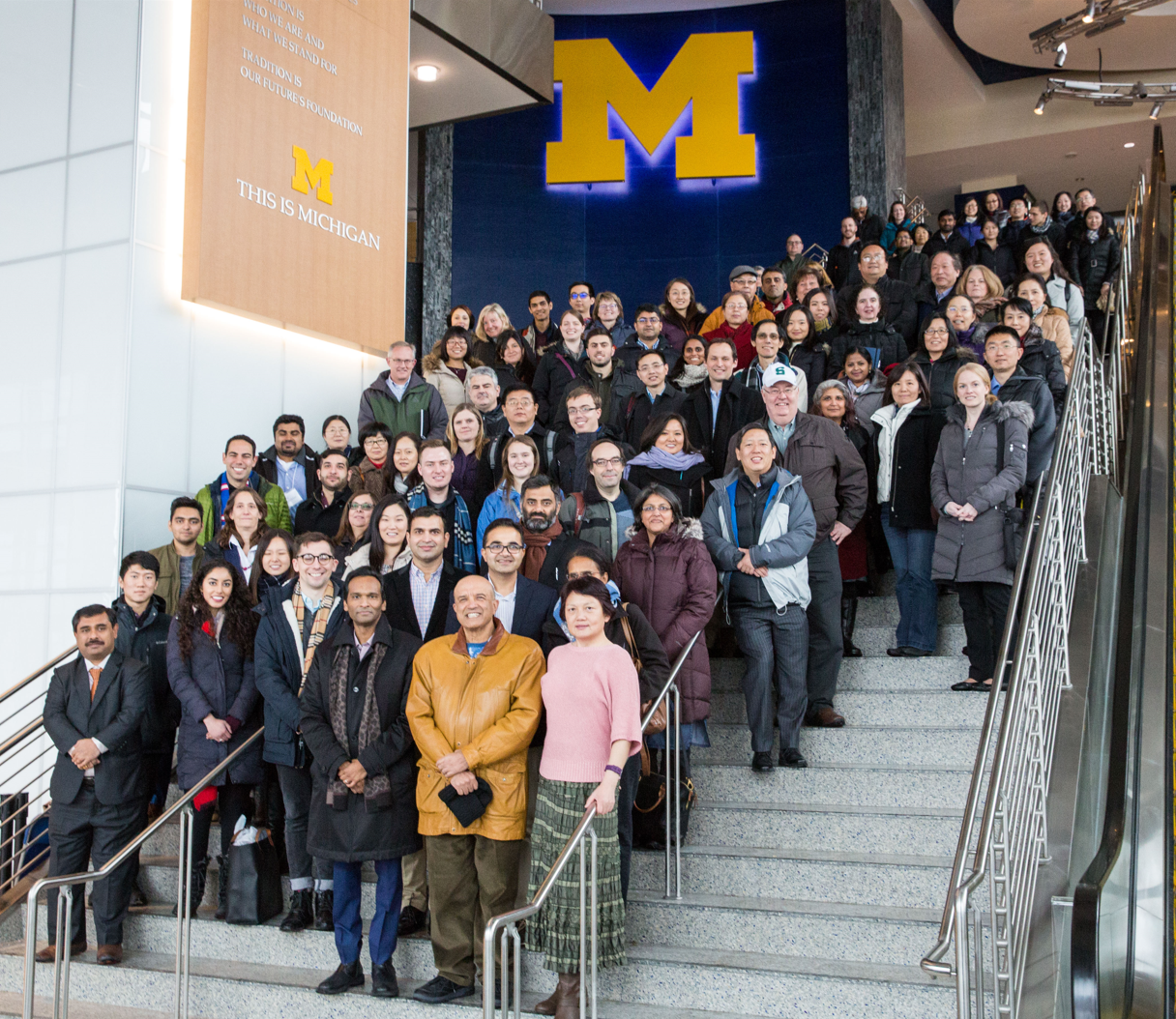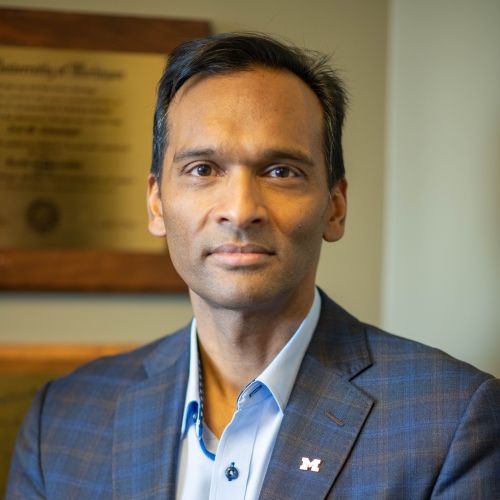The Chinnaiyan Lab

Overview and Background
The Chinnaiyan Lab has performed groundbreaking studies in the field of cancer research since its inception in 2001 at the University of Michigan. Arul Chinnaiyan, M.D., Ph.D., is currently the S.P. Hicks Endowed Professor of Pathology and Urology at the University of Michigan, an Investigator of the Howard Hughes Medical Institute, and an American Cancer Society Research Professor. The first landmark study of the lab was the discovery of recurrent TMPRSS2-ETS gene fusions in prostate cancer, for which Dr. Chinnaiyan was honored with the Sjöberg Prize from the Royal Swedish Academy of Sciences in 2022. Since these early studies, the lab has continued its legacy of innovative cancer research and integrates the latest technologies in the field to discover new biomarkers and targeted therapies for cancer. These research efforts are supported by several entities, including the National Cancer Institute, Prostate Cancer Foundation, and Trailsend Foundation, among others. The Chinnaiyan Lab is also committed to supporting the next generation of cancer researchers and provides a vibrant training environment for postdoctoral fellows, graduate students, and undergraduate students.
 Dr. Arul Chinnaiyan is a molecular pathologist and physician scientist at the leading edge of translational cancer research and precision oncology. He is also the Director of the Michigan Center for Translational Pathology. Dr. Chinnaiyan completed his undergraduate, M.D., Ph.D. degrees, and clinical pathology residency at the University of Michigan. He is a member of the American Society for Clinical Investigation, Association of American Physicians, American Academy of Arts and Sciences, National Academy of Inventors, National Academy of Medicine, and the National Academy of Sciences.
Dr. Arul Chinnaiyan is a molecular pathologist and physician scientist at the leading edge of translational cancer research and precision oncology. He is also the Director of the Michigan Center for Translational Pathology. Dr. Chinnaiyan completed his undergraduate, M.D., Ph.D. degrees, and clinical pathology residency at the University of Michigan. He is a member of the American Society for Clinical Investigation, Association of American Physicians, American Academy of Arts and Sciences, National Academy of Inventors, National Academy of Medicine, and the National Academy of Sciences.
The landmark achievement of his group's work is the discovery of TMPRSS2-ETS gene fusions in a majority of prostate cancers, the first causative gene fusion in a common solid tumor. In 2011, he established MI-ONCOSEQ, the first integrative, comprehensive clinical sequencing approach for advanced cancer patients, which has served as a paradigm for cancer precision medicine. His research also focuses on understanding the non-coding genome of cancer, particularly in the areas of biomarker and therapeutic development.
For more information on the recent research please visit Research focus page.